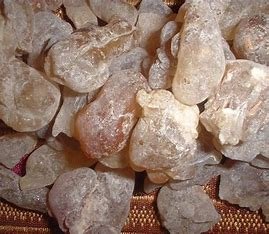Olibanum, often referred to as frankincense, is a fragrant resin obtained from trees of the genus Boswellia. For millennia, it has been revered for its aromatic properties and spiritual significance. From ancient Egyptian rituals to modern-day wellness practices, olibanum has captivated cultures worldwide.
A Historical Perspective
The history of olibanum is deeply intertwined with ancient civilizations. In ancient Egypt, it was a prized commodity, used in religious ceremonies, embalming processes, and medicinal practices. The Egyptians believed that burning olibanum could purify the air, ward off evil spirits, and connect with the divine.
In ancient Greece and Rome, olibanum was also highly valued. It was used in religious ceremonies, as a perfume, and as a medicinal herb. The ancient Greeks and Romans believed that olibanum could cure a variety of ailments, including headaches, coughs, and skin conditions.
The Chemistry of Fragrance
The distinctive aroma of olibanum is due to a complex mixture of volatile organic compounds, including terpenes and sesquiterpenes. These compounds contribute to the resin’s calming and uplifting properties. When burned, olibanum releases a soothing and slightly sweet fragrance that can help to reduce stress and anxiety.
Therapeutic Benefits
In recent years, there has been growing interest in the potential health benefits of olibanum. Studies have shown that it may have anti-inflammatory, antioxidant, and analgesic properties. Some of the potential therapeutic benefits of olibanum include:
Reducing Inflammation: Olibanum contains boswellic acids, which have been shown to inhibit the production of inflammatory substances in the body. This makes it a promising natural remedy for conditions such as arthritis and inflammatory bowel disease.
Improving Respiratory Health: The inhalation of olibanum smoke may help to soothe respiratory issues like asthma and bronchitis. It can also help to clear congestion and improve breathing.
Reducing Stress and Anxiety: The calming aroma of olibanum can help to reduce stress and anxiety.It can also help individuals unwind and sleep better.
Boosting Immunity: Olibanum may help to strengthen the immune system and protect against infections.
Skin Health: Topical application of olibanum may help to soothe skin irritations, reduce acne, and promote skin healing.
How to Use Olibanum
Olibanum can be used in a variety of ways, including:
Burning: The most traditional way to use olibanum is to burn it on charcoal or in an incense burner.
Inhalation: Inhaling the aroma of olibanum can be beneficial for respiratory health and stress relief.
Topical Application: Olibanum essential oil can be diluted and applied topically to the skin to address skin conditions.
Dietary Supplement: Olibanum supplements are available in capsule or powder form.
Choosing High-Quality Olibanum
When purchasing olibanum, it is important to choose high-quality products. Look for resins that are dark brown or amber in color and have a strong, fragrant aroma. Avoid products that are pale or have a weak scent, as these may be of lower quality.
Safety Considerations
While olibanum is generally safe for most people, it is important to use it with caution. Pregnant or breastfeeding women should avoid using olibanum, as there is limited information about its safety during these periods. People with allergies to plants in the Burseraceae family should also avoid using olibanum.
The Sacred Scent of Antiquity
Olibanum, often referred to as frankincense, has been revered for centuries for its aromatic properties and spiritual significance. Beyond its historical and cultural importance, it’s also a potent natural remedy with a range of potential health benefits.
The Science Behind the Scent
The unique aroma of olibanum is derived from a complex blend of volatile organic compounds, primarily terpenes and sesquiterpenes. These compounds contribute to its calming and uplifting effects.
Terpenes: These hydrocarbons are responsible for the fresh, citrusy notes in many essential oils. They have been studied for their potential to improve mood, reduce inflammation, and even fight cancer cells.
Sesquiterpenes: These compounds contribute to the woody, earthy notes of olibanum. They have been linked to a variety of health benefits, including improved cognitive function, reduced stress, and enhanced immune function.
Therapeutic Applications of Olibanum
Anti-inflammatory Properties:
Arthritis Relief: Olibanum’s anti-inflammatory properties can help alleviate the pain and stiffness associated with conditions like osteoarthritis and rheumatoid arthritis. Studies have shown that boswellic acids, the primary active compounds in olibanum, can inhibit the production of inflammatory substances.
Skin Health: Topical application of olibanum can help soothe skin irritations, reduce acne, and promote skin healing. Its anti-inflammatory properties can calm redness and inflammation.
Stress Reduction and Mental Clarity:
Aromatherapy: The soothing aroma of olibanum can help reduce stress, anxiety, and depression. Inhaling the fragrance can promote relaxation and improve mood.
Meditation and Mindfulness: Burning olibanum during meditation or yoga can enhance focus, clarity, and spiritual connection.
Respiratory Health:
Respiratory Infections: Olibanum’s antimicrobial properties can help combat respiratory infections like bronchitis and sinusitis.
Asthma Relief: Some studies suggest that olibanum may help alleviate asthma symptoms by reducing inflammation in the airways.
Immune System Support:
Antioxidant Properties: Olibanum’s antioxidant compounds can help protect cells from damage caused by free radicals, boosting overall immune function.
FAQs
What is Olibanum (Frankincense)?
Olibanum, also known as frankincense, is a fragrant resin obtained from trees of the genus Boswellia. It has been utilised for millennia in numerous civilisations due to its fragrant and therapeutic qualities.
Is Olibanum Safe?
Olibanum is generally safe for most people when used appropriately. However, pregnant or breastfeeding women should consult with a healthcare provider before using it. People with allergies to plants in the Burseraceae family should also avoid using olibanum.
Where Does Olibanum Come From?
Olibanum is primarily sourced from trees in the genus Boswellia, which are native to regions like Somalia, Ethiopia, and parts of the Arabian Peninsula.
Conclusion
Olibanum, with its rich history and diverse range of benefits, continues to captivate the world. Whether you’re seeking spiritual enlightenment, physical healing, or simply a moment of tranquility, olibanum offers a timeless and versatile solution. By understanding its properties and incorporating it into your daily routine, you can unlock the full potential of this ancient and powerful resin.
To read more, click here.

Leave a Reply